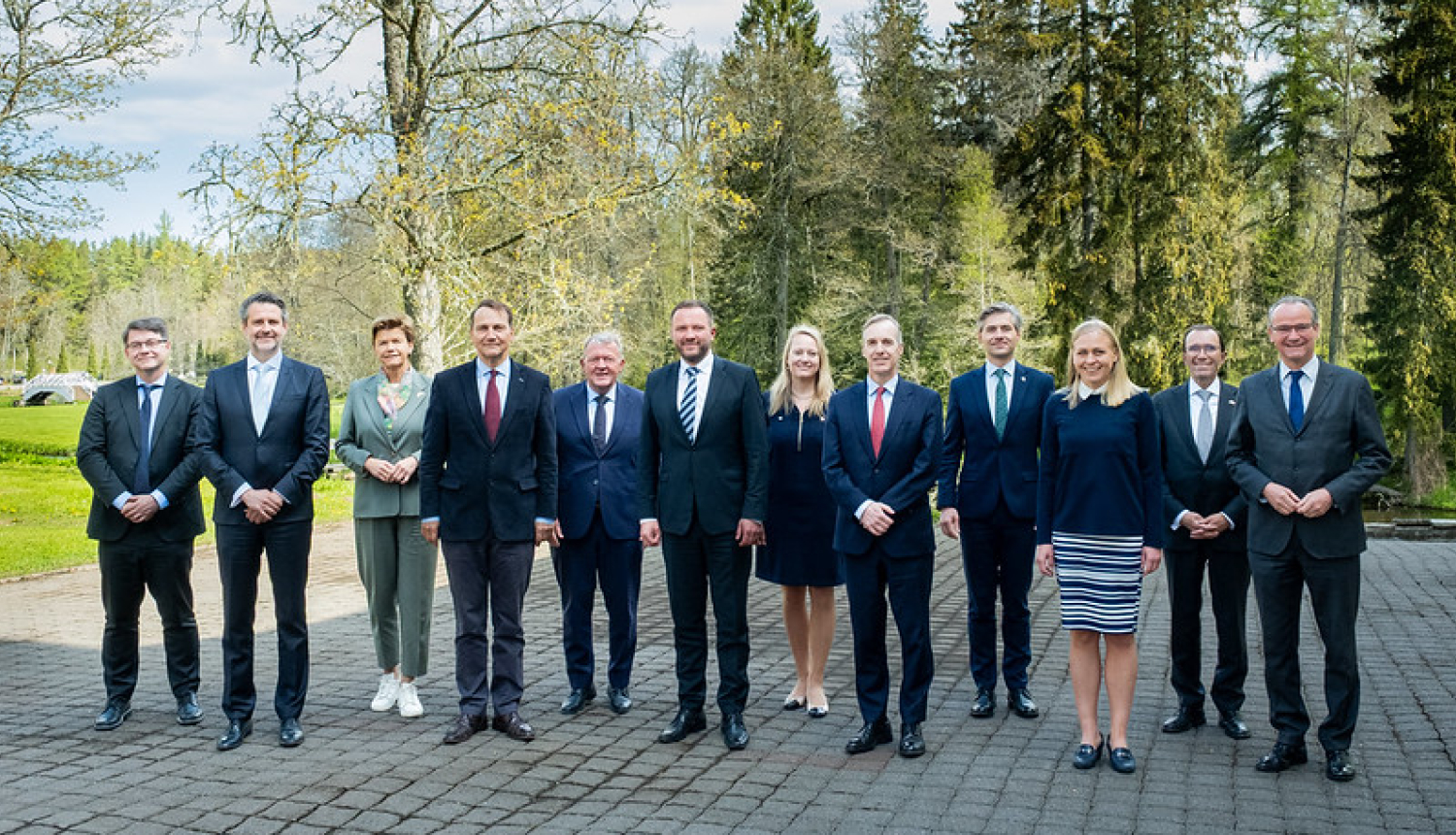The Ministers of Foreign Affairs of the Council of the Baltic Sea States (CBSS), in their meeting at Vihula, Estonia, on 15-16 May 2025, agreed to strengthen regional security and reorganize the organization’s activities with a focus on regional security, as well as adopting the Vihula Declaration. The meeting also addressed further comprehensive support to Ukraine, the threat posed by the Russian “shadow fleet” to the Baltic Sea region, including its critical infrastructure, and a joint action and future priorities for the CBSS.
A significant step in strengthening regional cooperation is the Memorandum of Understanding signed at the meeting by Denmark, Estonia, Finland, Germany, Iceland, Latvia, Lithuania, Norway, Poland, Sweden, and the European Union. It provides for closer and coordinated cooperation between the competent national authorities of the participating states for the protection of critical undersea infrastructure in the Baltic Sea, taking into account the incidents that occurred in the Baltic Sea last year and this year, when undersea energy (natural gas and electricity) interconnections and data transmission (fibre optic) cables were damaged or severed, as well as the threat posed by the Russian “shadow fleet” to the security and environment of the Baltic Sea, and to the security of energy and communication networks.
Foreign Minister Baiba Braže: “In recent years, Russia's unconventional attacks have become increasingly intense and aggressive – the involvement of “shadow fleet” vessels in damaging undersea infrastructure, cyberattacks, and GPS jamming, among others. Russia will continue to carry out its unconventional attacks, test the response capabilities of the EU and NATO Allies, and seek out weaknesses. Russia is the most serious threat to both the Baltic Sea region and to Euro-Atlantic security. We must act decisively and in a coordinated manner to strengthen our security and defence capabilities, while continuing efforts on a comprehensive containment of Russia. The memorandum signed today is a major step towards a more coordinated and closer cooperation between the countries in the Baltic region on technological and scientific matters related to critical undersea infrastructure.”
As pointed out by Baiba Braže, each security incident has a significant economic impact, for example, repairs of undersea energy and communication network infrastructure are expensive and time-consuming. Therefore, alongside surveillance and monitoring capabilities, it is important to build capacity for repairing damage to infrastructure as effectively as possible.
When deciding on the future activities of the CBSS, the ministers supported its restructuring so as to put its institutional focus on the strengthening of regional security, including effective coordination of cooperation with NATO and the EU. Baiba Braže pointed out: “The organization must undergo reform for it to be able to respond promptly to the growing non-military threat.”
The Ministers welcomed a report reviewing the role of the CBSS and proposing recommendations on its future produced by Toomas Hendrik Ilves and Gabrielius Landsbergis. A review of the functioning of the organisation established 33 years ago was agreed by the ministers at their previous meeting in Porvoo, Finland, on 13-14 June 2024.
The CBSS meeting was attended by officials from Estonia, Latvia, Lithuania, Poland, Finland, Sweden, Denmark, Norway, Germany, Iceland, and the European External Action Service.





